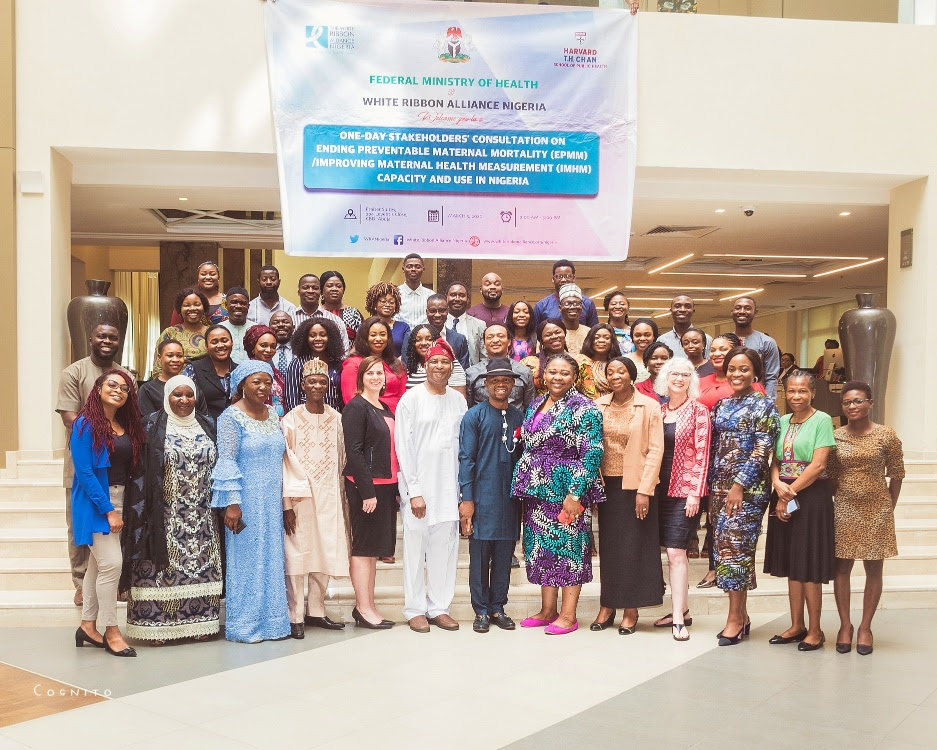
Reflections from Nigeria’s EPMM/IMHM dialogue
- Health Sector
- No Comment
- 437

| Background Six years ago, WHO released Strategies toward Ending Preventable Maternal Mortality (EPMM), a direction-setting report that outlines global targets and strategies for reducing maternal mortality in the SDG period. The strategies describe 11 priority themes for EPMM, which originated from consultations with stakeholders around the globe conducted by the EPMM Working Group to guide the development of the comprehensive strategic framework. The 11 priority themes for EPMM also reveal the need for a multi-sectorial approach if we must make progress towards Ending Preventable Maternal Mortality. One important strategy outlined in the EPMM report is the measurement for maternal health—collecting data, making data transparent and available, and using data to advocate for improved policies, programming and funding. The Improving Maternal Health and Measurement Capacity and use project (IMHM) is a three-year project launched in 2017, by the Women and Health Initiative of the Harvard T.H Chan School of Public Health, the IMHM project works to advance Maternal Health Measurement capacity and accelerate progress towards ending preventable maternal mortality by validating indicators focused on social, economic and political determinants. Collaborating with the White Ribbon Alliance,(A people-led movement for reproductive health), the project worked to advance Maternal Health Measurement capacity and accelerate progress towards ending preventable maternal mortality by validating indicators focused on social, economic and political determinants of health. The project convened dialogues in Kenya, India, Bangladesh, Mexico, Cote d’Ivoire and Nigeria. These dialogues sought to better understand different countries’ specific needs and interests related to maternal health monitoring and discuss the use of prioritised indicators to inform a strategic decision on maternal health investments and programs.  |
| Nigeria’s EPMM Dialogue Last year, a selected group of stakeholders from the Federal Ministry of Health, Niger State Ministry of Health, multilaterals, academia, civil society organisations, religious groups, women groups, community representatives, youth and media representatives came together in a multi-stakeholders dialogue to evaluate EPMM priorities, key themes and related core indicators most important for national monitoring of maternal and newborn health in Nigeria The dialogue was convened with the following objectives: Dialogue Objectives • Review and discuss WHO EPMM Strategies and related indicators and how they may advance maternal health in Nigeria. • Identify opportunities to integrate and strengthen the focus on social determinants of maternal health within relevant national policies, plans, and programs. • Identify country strategic priorities for ending preventable maternal mortality and ways to strengthen monitoring and use of data from distal and social indicators in Nigeria to help measure progress. • Build on the availability and use of existing monitoring data to identify key advocacy needs and opportunities for advancing maternal health in Nigeria.  Participants evaluated priority key themes in the EPMM framework and related core indicators most important for national monitoring of maternal and newborn health in Nigeria according to the defined criteria in a group work. Top Three EPMM Priorities in Nigeria 1) Ensure country ownership, leadership, and supportive legal, regulatory and financial frameworks (four of six groups prioritized this theme).The most important indicator to track: Costed implementation plan for maternal, newborn, and child health. 2) Allocate adequate resources and effective healthcare financing (three of six groups prioritized this theme).Most important indicators to track: Percentage of total health expenditure spent of reproductive, maternal, newborn, and child healthAnnual reviews are conducted of health spending for all financial sources, including spending on RMNCH, as a part of broader healthcare reviews 3) Apply a human-rights framework to ensure that high-quality reproductive, maternal, and newborn health care is available, accessible, and acceptable to all who need it (three of six groups prioritized this theme)Most important indicator to track: Proportion of women aged 15–49 who make their own informed and empowered decisions regarding sexual relations, contraceptive use and reproductive healthcare Advocacy Agenda · Government at all levels should commit to country ownership, purposeful leadership and supportive legal, regulatory, and financial frameworks to end preventable maternal mortality ·Federal, state, and local governments should allocate adequate domestic resources and ensure effective, transparent, and accountable healthcare financing ·Federal and state ministries of health, civil society, and human rights commissions should apply a human rights framework to ensure that high-quality reproductive, maternal, and newborn healthcare is accessible, available, and acceptable to all who need it. Next Steps· WRA Nigeria is gradually including these advocacy priorities into our work and we will love to know who else is working on what to form synergy· WRA Nigeria and Rachel from Harvard T.H Chan School of Public Health will be reaching out to some people for follow-up interviews and a focused group discussion Read Forum Report |





